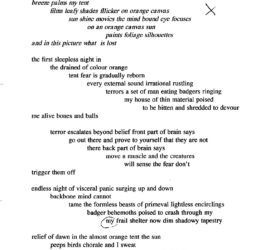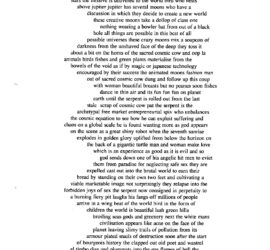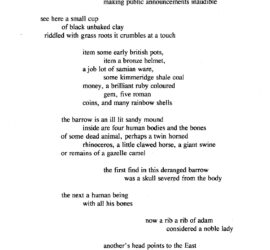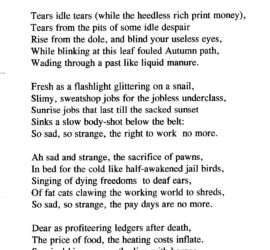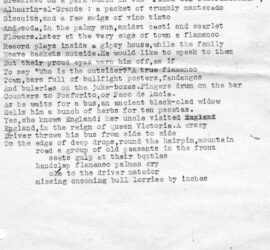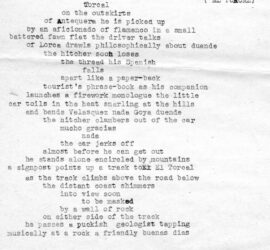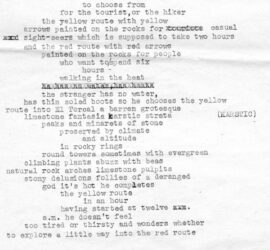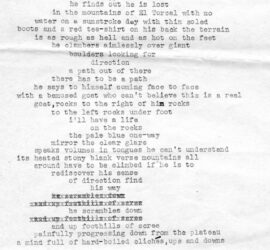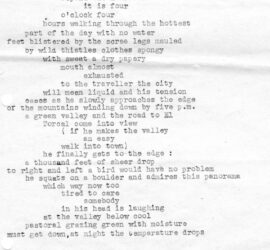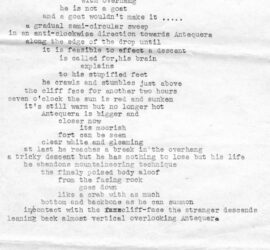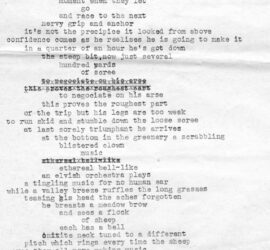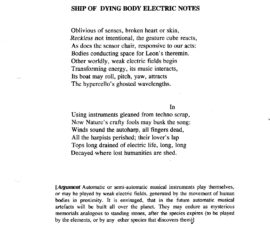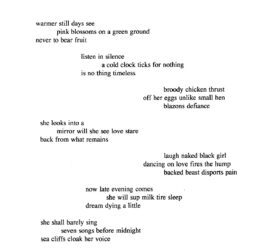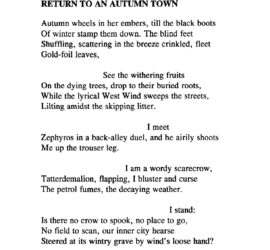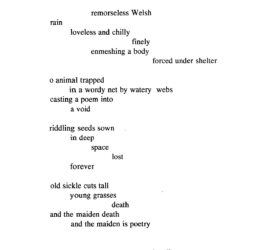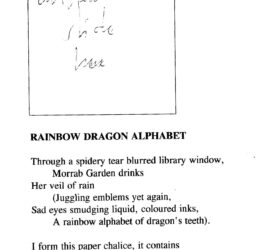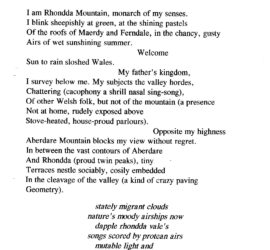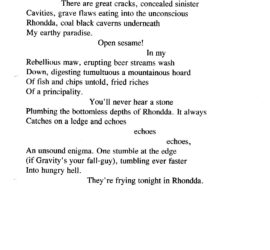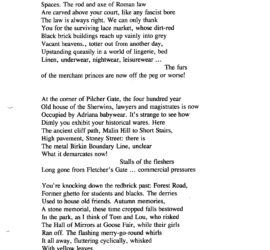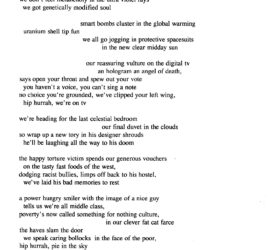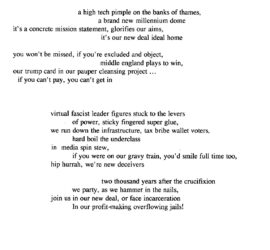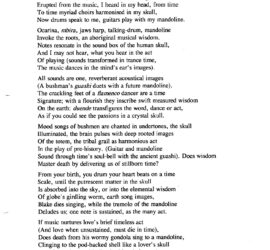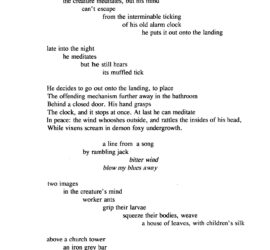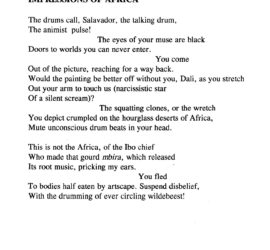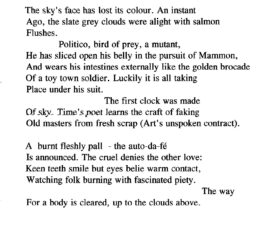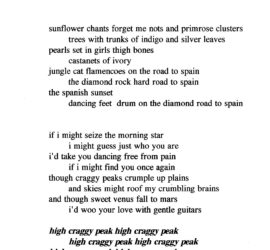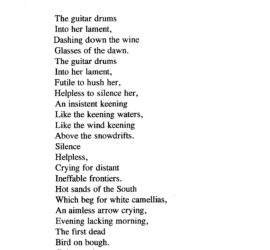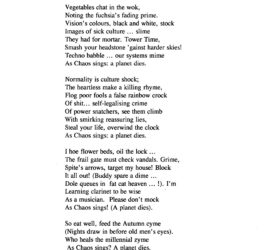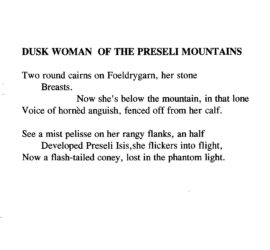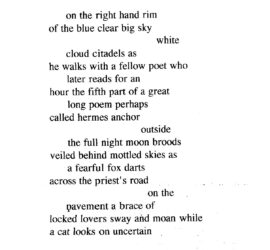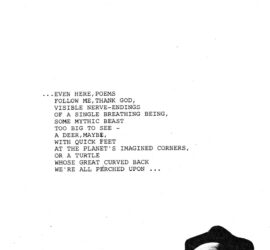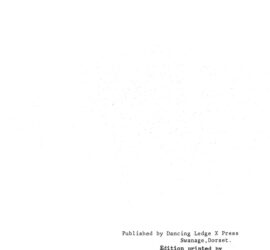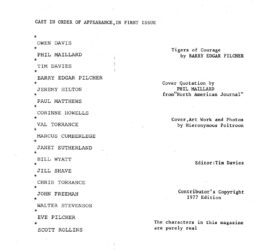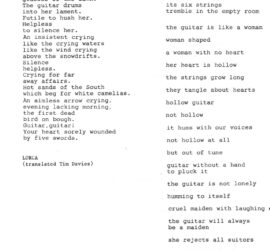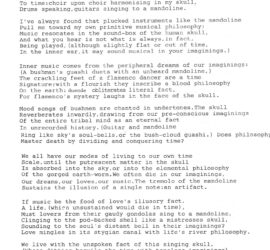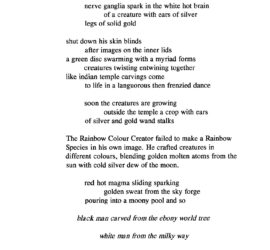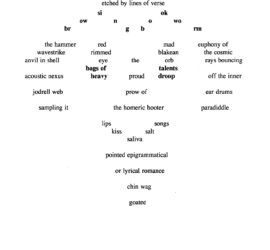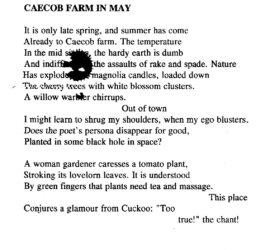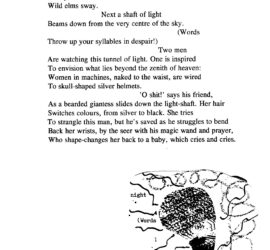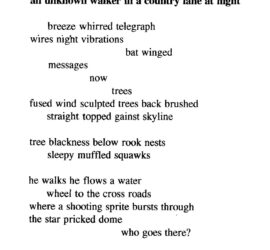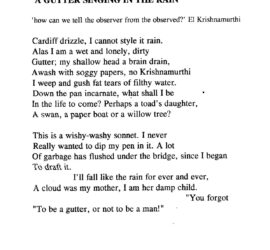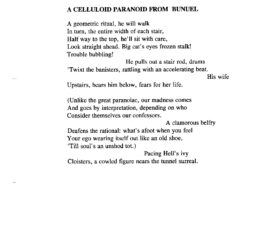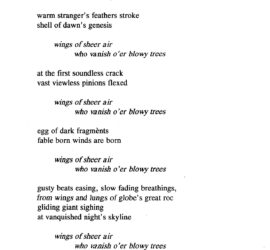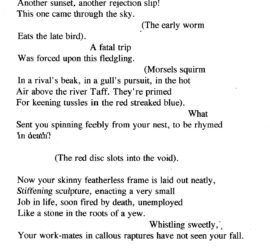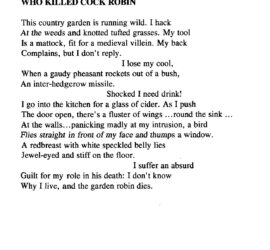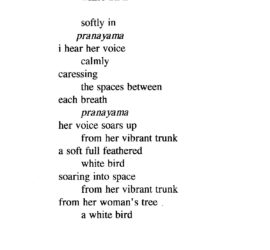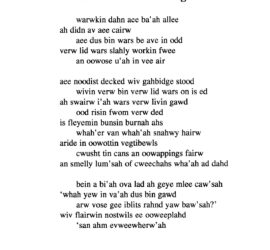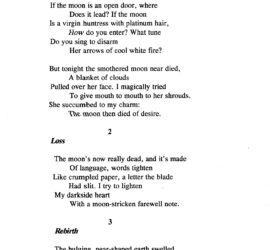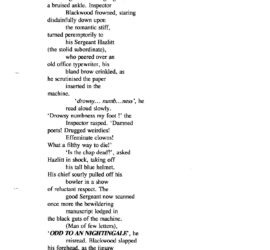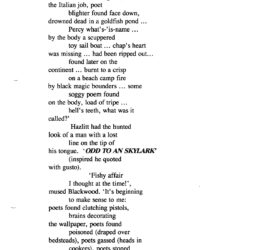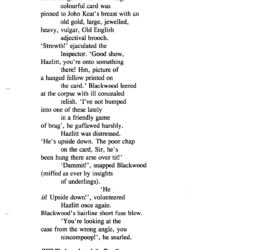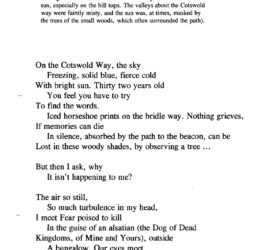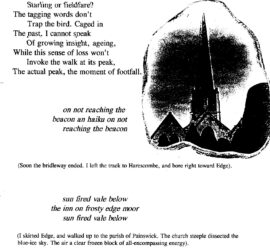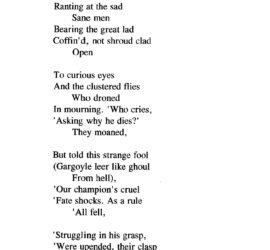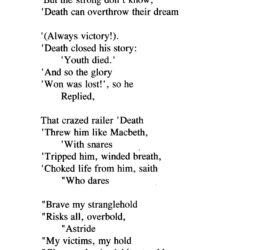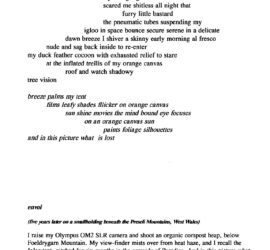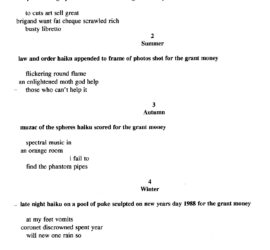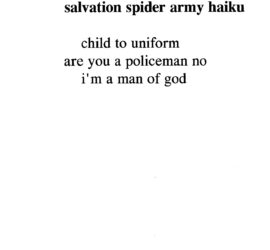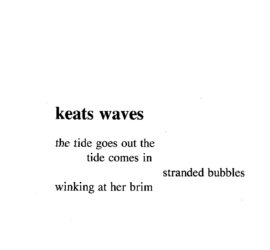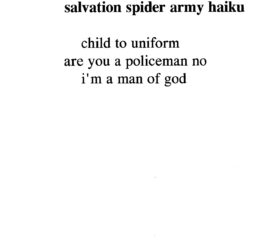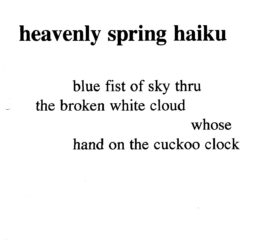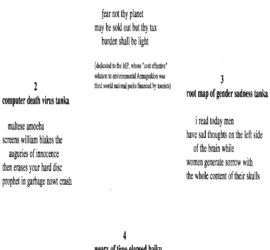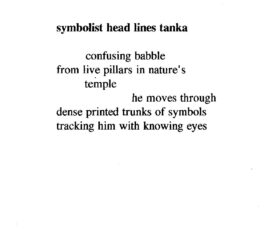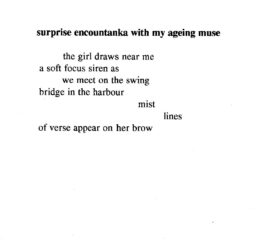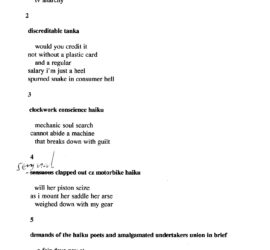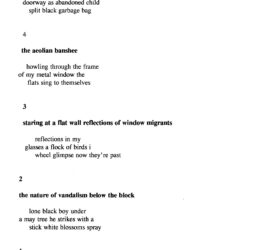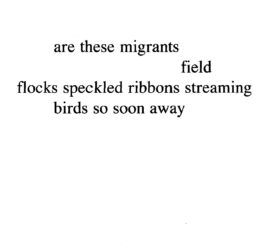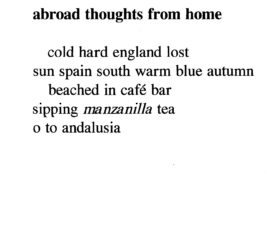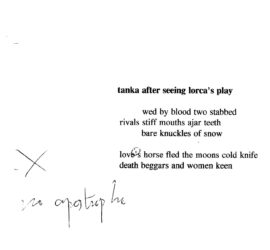El Timbo’s poems and songs were often an expression of his anger and frustration with the state of society, politics, the economy, exclusion, the environment, the abuses of power. He didn’t hold back! But he also reflected major existential questions about mortality, heritage and belonging. And he could be very playful, for example, in punning or in arranging and recording popular song tunes.
It is somewhat artificial in El Timbo’s writing to distinguish between his poetry and song lyrics. Many of his songs were musical adaptations of his poetry. Music was also extremely important to him, even if one felt that, in his songs, the words (and their meaning) came first. Nevertheless, to give some structure to these pages of the site, we have classified his writing into the three strands of:
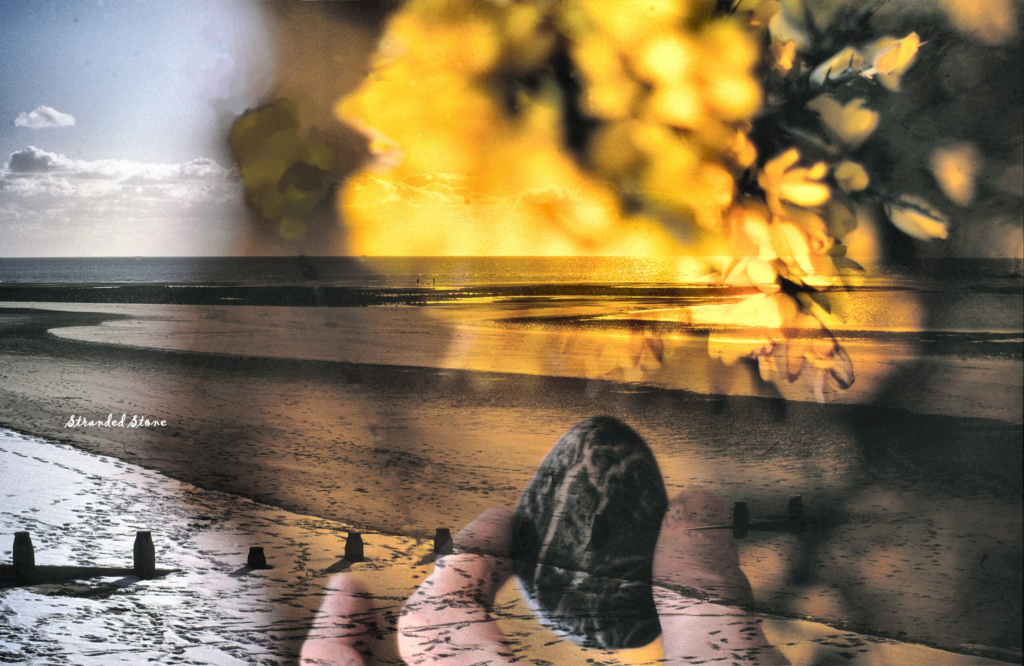

El Timbo started writing poetry in secondary school, and had his first poem, ‘From Rhondda Mountain’* published in around 1965 in ‘Yak, the Apsley Grammar School, Hemel Hempstead VIth Form magazine. (Copies of this apparently still exist).
*Maerdy, in the Rhondda Fach, South Wales, was the home village of our father, his parents and grandparents.
Over the years El Timbo wrote and re-wrote (then often ‘re-re-wrote’) dozens of poems and song lyrics. Typically these could take years to draft, refine and complete. Indeed arguably he regarded his poems as incomplete ‘works-in-progress’ to be further refined and developed along the way. El Timbo also experimented with a number of poetical forms, including concrete poetry (from the 1960s on), song lyrics and haiku. Relatively late in his progress as an artist, he seems to have found that the haiku form gave him a more rapid platform for expression, often in immediate response to matters he felt strongly about in the world around him. As such the haikus apparently sit somewhere between the role of a journal and that of a polemical tool.
Poems...
Haiku and Tanka...
NOTE: The technical difference between haiku and tanka is in length. Haiku is composed of three phrases 5-7-5 and tanka is of five phrases 5-7-5-7-7. In tanka, the 5-7-5 is called the upper phrase (Kamino-ku) ), and the 7-7 is called the lower phrase (Shimono-ku).
Some in PDF format, so the style could be preserved…
Song lyrics...
[IN PREPARATION] El Timbo’s song lyrics are presented here in two ways: within the song albums that can be accessed in the site here; and as a selection of other individual song lyrics [LINKS TO BE ADDED]. All these lyrics can equally be approached as poems in their own right.
Sad Old Ram of the Mountains
Sea Song of the Phantom Fiddler
Laugh I nearly Died
Mount Bermo Timbo’s Lament
Other Song Lyrics
